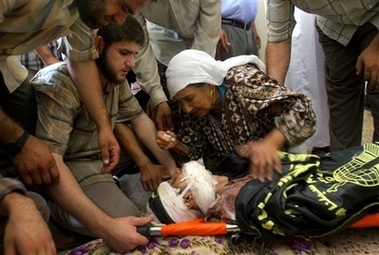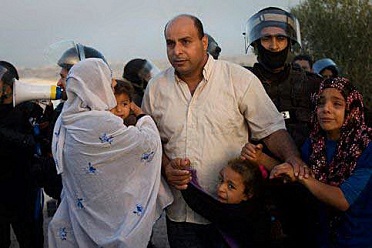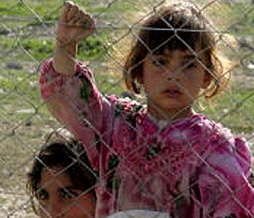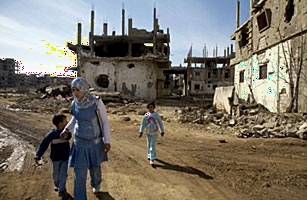Palestine: Occupied, Divided, Isolated, Oppressed and Unaided
Imagine the following:
You're ruthlessly oppressed in an occupied country under a system of institutionalized racism, affording rights solely to Jews. You have no recognized nation, no right of citizenship, no democratic freedoms or civil liberties, including no power over your daily life.
You live in constant fear, collectively punished, politically denied, and economically strangled in a continuing cycle of violence. Military orders deny free expression and movement, enclose population centers, close borders, and impose curfews, checkpoints, roadblocks, separation walls, electric fences, dispossessions, land seizures, and domination over all aspects of life under draconian military orders like the following:
● No. 92 giving Israel control of all West Bank and Gaza water;
● No. 158 stipulating that Palestinians can't construct water installations without (nearly impossible to get) permit permission and those built will be confiscated or demolished;
● No. 1015 requiring Palestinians get permission to plant trees on their own land;
● No 128 authorizing the IDF to take over any Palestinian business not open during regular business hours;
● No. 107 prohibiting Arabic grammar, Crusades history and Arab nationalist publications;
● No. 101 banning gatherings of more than 10 people without advance notice with names of participants;
● Nos. 811 and 847 letting Jews buy land from Palestinian owners with or without their consent;
● No. 998 requiring Palestinians get permission to withdraw funds from their bank accounts;
● No. 818 authorizing how Palestinians can plant decorative flowers;
●- No. 329 preventing the right of return; and
● Nos. 1649 and 1650 turning all West Bank residents (including native born ones) potentially into "infiltrators," making them vulnerable to deportation, fines or imprisonment without IDF-issued permits.
Overall, your land is occupied, communities isolated, homes invaded, friends and relatives arrested, neighborhoods attacked, homes bulldozed, land stolen, fields uprooted and burned, businesses closed, and livelihoods denied. You're impoverished, unemployed, starved, tortured, murdered, punitively taxed and fined, and demonized for being Muslims in a Jewish state. You endure it daily on your own unaided, yet you go on, hoping others later will do better.





























